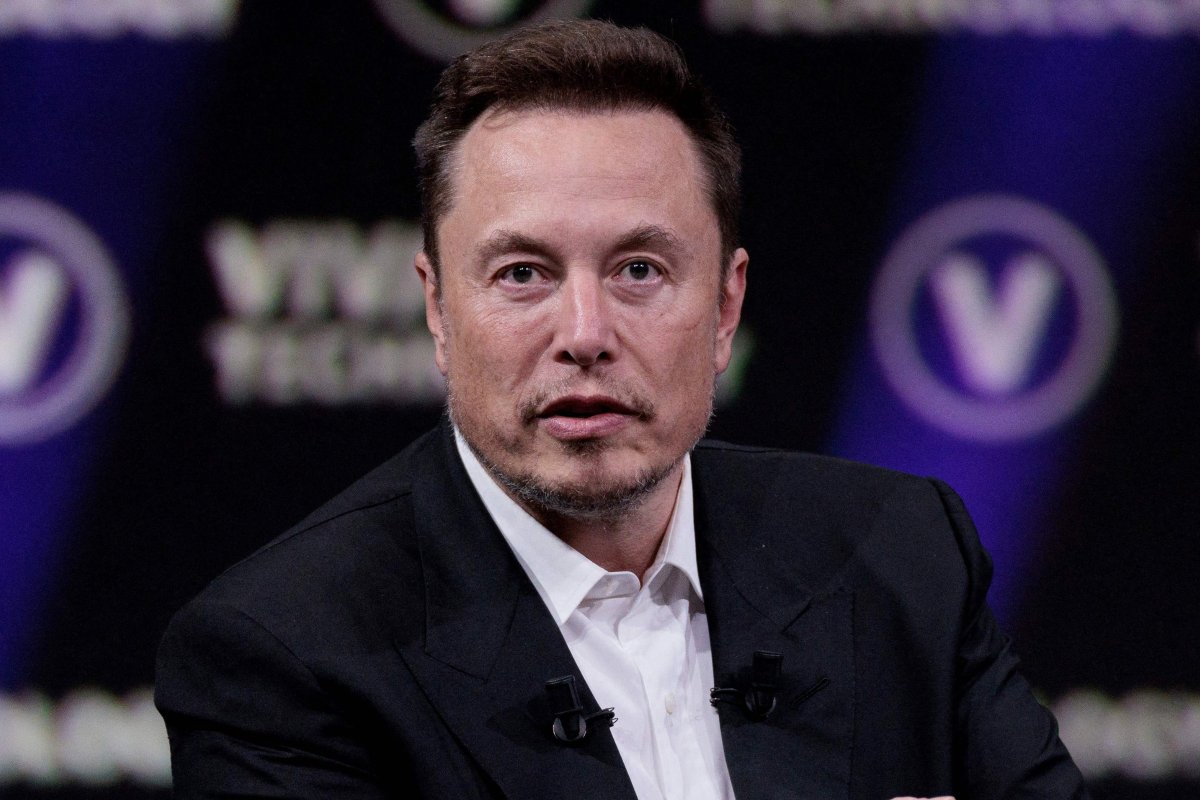Elon Musk has backtracked on his decision to remove headlines from news article posts on X, formerly Twitter—less than two months after the change was implemented on the social media platform.
Billionaire Musk, whose purchase of the social media giant last year has been marred by financial troubles, outages and other controversies, announced in August that the platform would remove headlines and text from such posts, with links displaying only on an article's lead image.
At the time of the announcement, Musk said that the order for the change came "directly" from him, and that it would "greatly improve esthetics" on the platform.
When the change was implemented the following month, in September, Musk admitted that its intended purpose was to keep users on the platform by reducing traffic to external websites.

"Our algorithm tries to optimize time spent on X, so links don't get as much attention, because there is less time spent if people click away," he wrote on the platform. "Best thing is to post content in long form on this platform."
The decision, which was one of several changes to have been met with complaints from a number of X users, reversed on Wednesday, with Musk announcing that headlines would be back—albeit with a slight change.
"In an upcoming release, 𝕏 will overlay title in the upper potion of the image of a URL card," he told his more than 164 million followers. Musk did not elaborate on what prompted the decision to bring back the feature.
In an upcoming release, 𝕏 will overlay title in the upper potion of the image of a URL card
— Elon Musk (@elonmusk) November 23, 2023
The announcement prompted a mixed reaction from X users, one of whom said in their response to Musk: "Please stop fixing things that aren't broken so that then they need to be fixed when you break them."
"Twitter is better today then it was before [Musk] so let him do him," an X user countered
South African-born Musk announced that he would be rebranding the platform from Twitter to X in a series of posts back in July.
The changes included a shift away from the traditional bird iconography the platform had used since its 2006 launch to an X. He also changed the name of the platform to X, a move that was met with widespread derision at the time.
Months before the logo change, Musk revealed that he was hoping to create an "everything app," modeled on a Chinese app called WeChat, that allows users to send messages, perform banking tasks, pay bills, and order cabs.
Several major companies recently pulled their advertising from X, after Musk promoted a post that accused Jewish people of pushing hatred before he took aim at antisemitism watchdog the Anti-Defamation League (ADL).
Last week, the Tesla and SpaceX CEO replied to a post that read: "Jewish communties [sic] have been pushing the exact kind of dialectical hatred against whites that they claim to want people to stop using against them." Musk wrote this was "the actual truth."
Widely regarded as the richest man in the world, the tech entrepreneur has previously courted controversy for outspoken messages on the platform. Musk has also faced criticism over allowing hate speech to flourish on X.
After Musk promoted the "hatred against whites" post, ADL CEO Jonathan Greenblatt responded: "At a time when antisemitism is exploding in America and surging around the world, it is indisputably dangerous to use one's influence to validate and promote antisemitic theories."
Entertainment company Paramount Global is "suspending all ad spend on X," a spokesperson told Newsweek on Saturday. A spokesperson for production company Lionsgate told Newsweek on Sunday it had suspended its advertising on the platform "because of Elon Musk's recent antisemitic tweets."
In the ensuing backlash against him, Musk wrote in a further post: "The ADL unjustly attacks the majority of the West, despite the majority of the West supporting the Jewish people and Israel. This is because they cannot, by their own tenets, criticize the minority groups who are their primary threat."
At the time of the post, Musk did not clarify which "minority groups" he was referring to. Newsweek approached X representatives via email for comment.
It follows a report by Media Matters, a progressive watchdog, which found ads were being placed alongside antisemitic conspiracy theories and far-right hate speech on X. A spokesperson for X told the BBC that it did not intentionally place ads "next to this kind of content" and that the platform was dedicated to combating anti-Jewish hate speech.
In the early hours of Saturday morning, Musk launched a rebuke of the Media Matters report, adding that X would be "filing a thermonuclear lawsuit against Media Matters and all those who colluded in this fraudulent attack on our company."
"X has been extremely clear about our efforts to combat antisemitism and discrimination," Linda Yaccarino, X's CEO, wrote last Friday. "There's absolutely no place for it anywhere in the world."
Uncommon Knowledge
Newsweek is committed to challenging conventional wisdom and finding connections in the search for common ground.
Newsweek is committed to challenging conventional wisdom and finding connections in the search for common ground.
About the writer
Ryan Smith is a Newsweek Senior Pop Culture and Entertainment Reporter based in London, U.K. His focus is reporting on ... Read more
To read how Newsweek uses AI as a newsroom tool, Click here.






